Vallabhbhai Patel (1875-1950) – Letter - a handwritten letter in Gujerati, written by Patel whilst imprisoned at Nasik Road Central Prison; Dear brother Balvantrai, I received the letter of Pandit from Mumbai. The poor Jamnadas uncle’s house/family got broken. Ratilal had already passed away, now Kanti also went behind him. It is really terrible but what can we do? You and Haribhai did such a hard work but what the doctors can do, can anyone deny the destiny? Maniben went. Was is her health well? As you did her check-up so you might know it exactly. Hope the eye of Haribhai is well now. What happened to that as he was supposed to go Mumbai for spectacles? I haven’t receive his letter. It seems that Balubhai has started well. It also seems that the reporter of the Times has been changed this time. It seems that the Muslims have supported very well. If this continues, then the conflicts between the communities will go away. Only god knows till when this will continue. Hope your health is well. Hope Jitu is well now. From, Salutations from Vallabhbhai. Stamped to top 'Superintendent - Nasik Road Central Prison' with an official's signature in blue pencil. Written in black ink to a single side. Folded. Measures 17cm x 11cm. Upon the failure of the Round Table Conference in London, Gandhi and Patel were arrested in January 1932 when the struggle re-opened, and imprisoned in the Yeravda Central Jail. During this term of imprisonment, Patel and Gandhi grew close to each other, and the two developed a close bond of affection, trust, and frankness. Their mutual relationship could be described as that of an elder brother (Gandhi) and his younger brother (Patel). Despite having arguments with Gandhi, Patel respected his instincts and leadership. In prison, the two discussed national and social issues, read Hindu epics, and cracked jokes. Gandhi taught Patel Sanskrit. Gandhi's secretary, Mahadev Desai, kept detailed records of conversations between Gandhi and Patel. When Gandhi embarked on a fast-unto-death protesting the separate electorates allocated for untouchables, Patel looked after Gandhi closely and himself refrained from partaking of food. Patel was later moved to a jail in Nasik, and refused a British offer for a brief release to attend the cremation of his brother Vithalbhai, who had died in October 1933. He was finally released in July 1934. Vallabhbhai Jhaverbhai Patel (31 October 1875 – 15 December 1950), endeared as Sardar, was an Indian statesman. He served as the first Deputy Prime Minister of India from 1947 to 1950. He was a barrister and a senior leader of the Indian National Congress, who played a leading role in the country's struggle for independence, guiding its integration into a united, independent nation. He was one of the conservative members of the Indian National Congress. In India and elsewhere, he was often called Sardar, meaning "chief" in Hindi, Urdu, and Persian. He acted as the Home Minister during the political integration of India and the Indo-Pakistani War of 1947. One of Mahatma Gandhi's earliest political lieutenants, he organised peasants from Kheda, Borsad, and Bardoli in Gujarat in non-violent civil disobedience against the British Raj, becoming one of the most influential leaders in Gujarat. He was appointed as the 49th President of Indian National Congress, organising the party for elections in 1934 and 1937 while promoting the Quit India Movement.
Vallabhbhai Patel (1875-1950) – Letter - a handwritten letter in Gujerati, written by Patel whilst imprisoned at Nasik Road Central Prison; Dear brother Balvantrai, I received the letter of Pandit from Mumbai. The poor Jamnadas uncle’s house/family got broken. Ratilal had already passed away, now Kanti also went behind him. It is really terrible but what can we do? You and Haribhai did such a hard work but what the doctors can do, can anyone deny the destiny? Maniben went. Was is her health well? As you did her check-up so you might know it exactly. Hope the eye of Haribhai is well now. What happened to that as he was supposed to go Mumbai for spectacles? I haven’t receive his letter. It seems that Balubhai has started well. It also seems that the reporter of the Times has been changed this time. It seems that the Muslims have supported very well. If this continues, then the conflicts between the communities will go away. Only god knows till when this will continue. Hope your health is well. Hope Jitu is well now. From, Salutations from Vallabhbhai. Stamped to top 'Superintendent - Nasik Road Central Prison' with an official's signature in blue pencil. Written in black ink to a single side. Folded. Measures 17cm x 11cm. Upon the failure of the Round Table Conference in London, Gandhi and Patel were arrested in January 1932 when the struggle re-opened, and imprisoned in the Yeravda Central Jail. During this term of imprisonment, Patel and Gandhi grew close to each other, and the two developed a close bond of affection, trust, and frankness. Their mutual relationship could be described as that of an elder brother (Gandhi) and his younger brother (Patel). Despite having arguments with Gandhi, Patel respected his instincts and leadership. In prison, the two discussed national and social issues, read Hindu epics, and cracked jokes. Gandhi taught Patel Sanskrit. Gandhi's secretary, Mahadev Desai, kept detailed records of conversations between Gandhi and Patel. When Gandhi embarked on a fast-unto-death protesting the separate electorates allocated for untouchables, Patel looked after Gandhi closely and himself refrained from partaking of food. Patel was later moved to a jail in Nasik, and refused a British offer for a brief release to attend the cremation of his brother Vithalbhai, who had died in October 1933. He was finally released in July 1934. Vallabhbhai Jhaverbhai Patel (31 October 1875 – 15 December 1950), endeared as Sardar, was an Indian statesman. He served as the first Deputy Prime Minister of India from 1947 to 1950. He was a barrister and a senior leader of the Indian National Congress, who played a leading role in the country's struggle for independence, guiding its integration into a united, independent nation. He was one of the conservative members of the Indian National Congress. In India and elsewhere, he was often called Sardar, meaning "chief" in Hindi, Urdu, and Persian. He acted as the Home Minister during the political integration of India and the Indo-Pakistani War of 1947. One of Mahatma Gandhi's earliest political lieutenants, he organised peasants from Kheda, Borsad, and Bardoli in Gujarat in non-violent civil disobedience against the British Raj, becoming one of the most influential leaders in Gujarat. He was appointed as the 49th President of Indian National Congress, organising the party for elections in 1934 and 1937 while promoting the Quit India Movement.
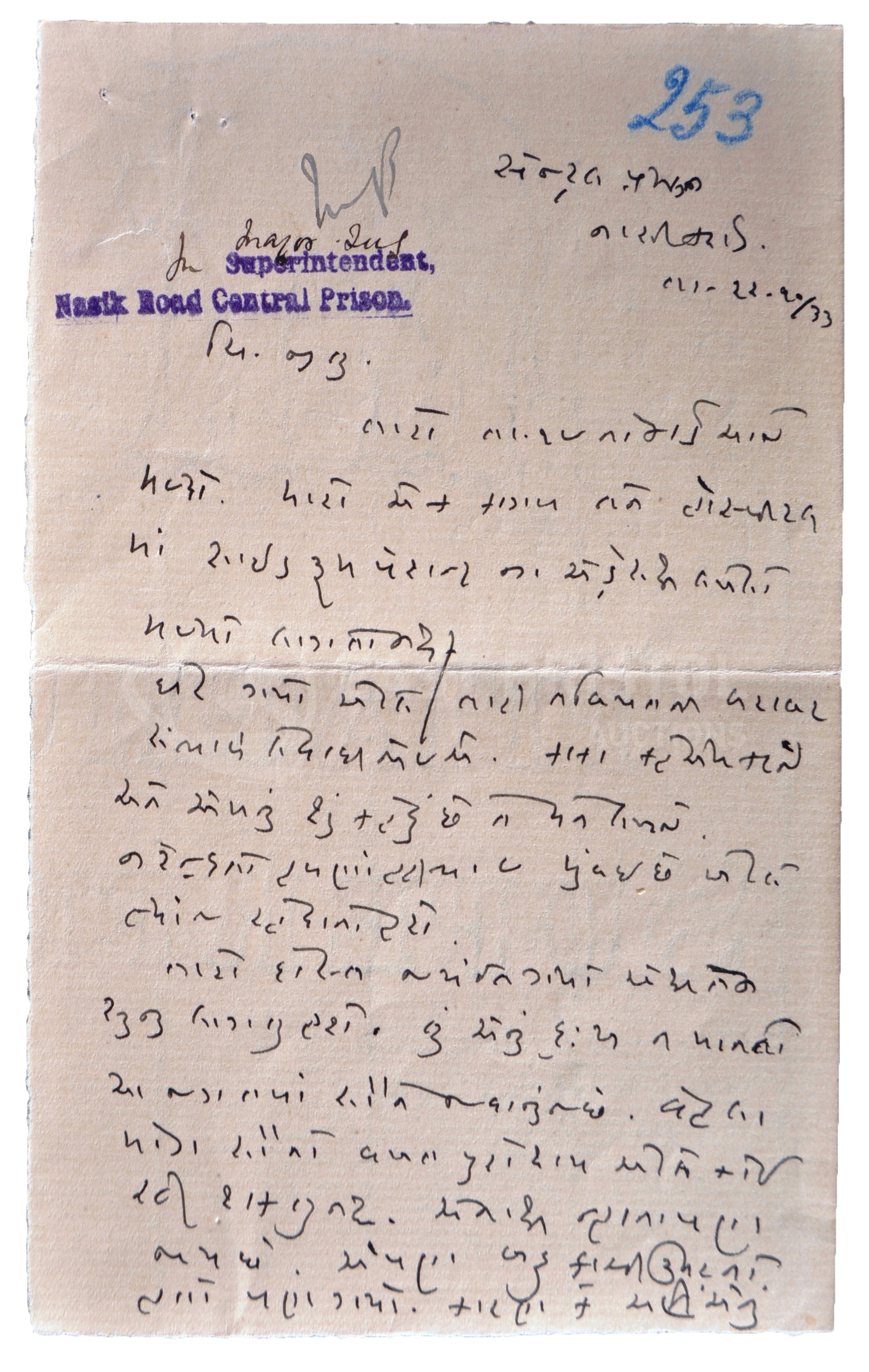

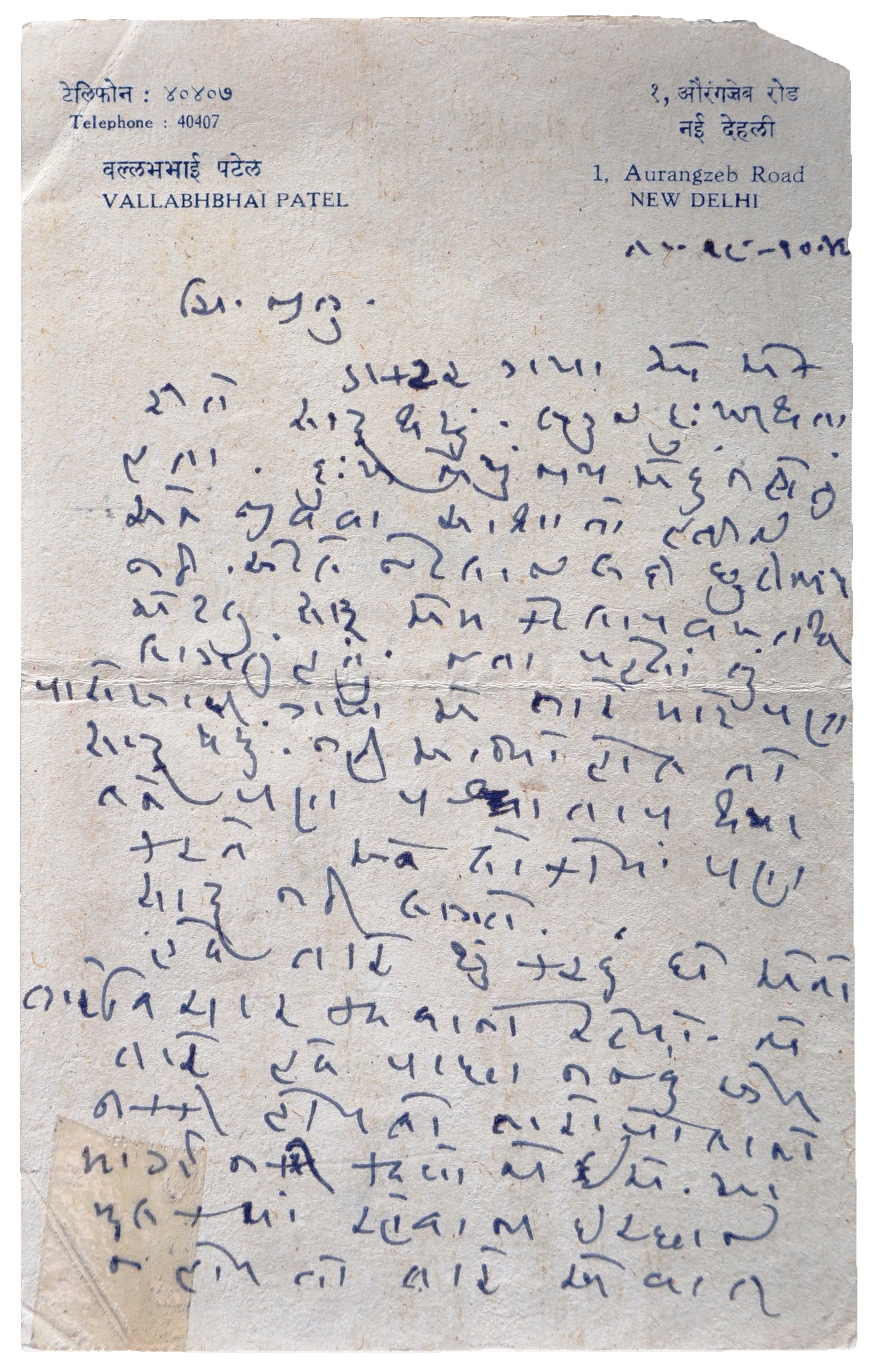

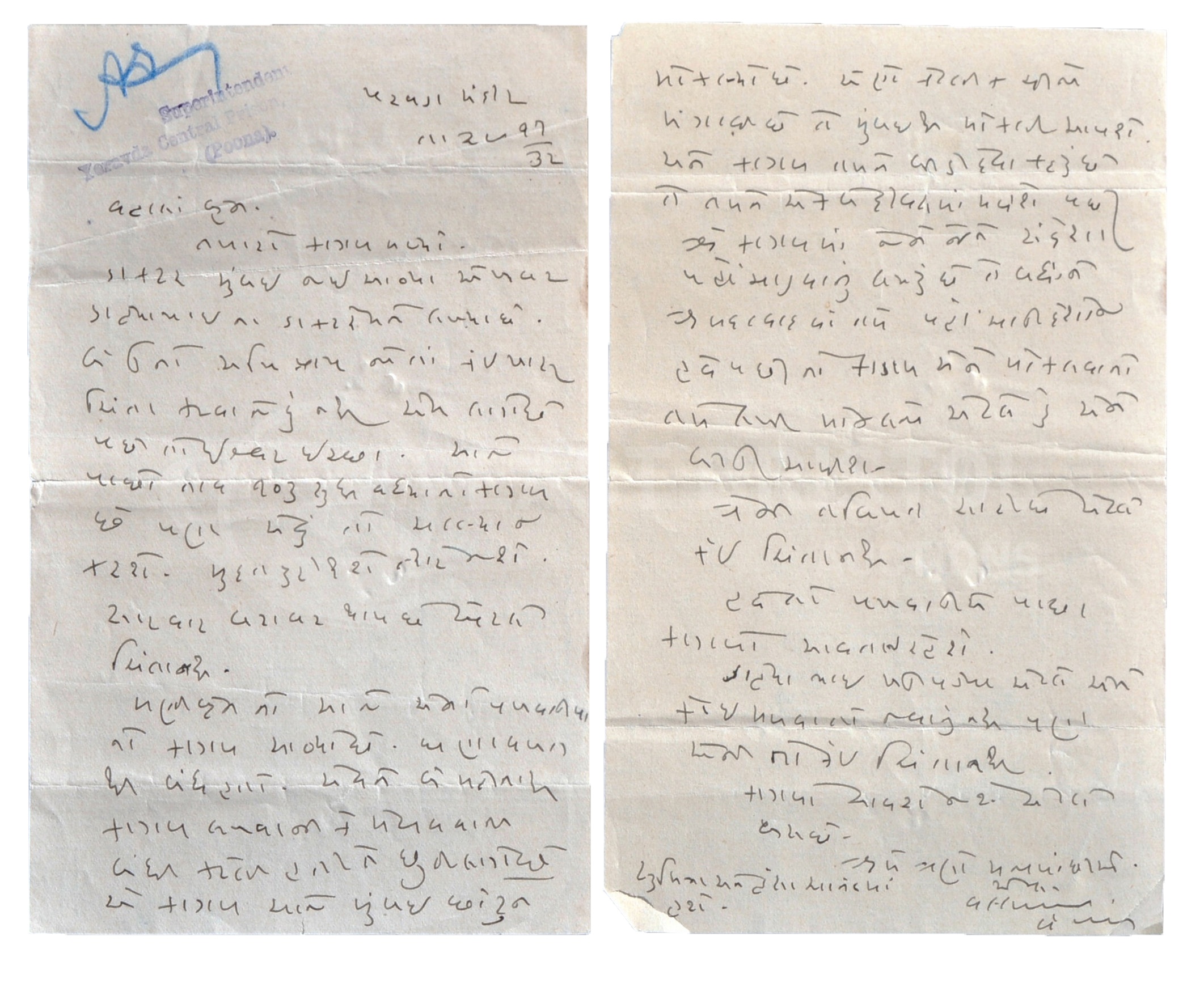
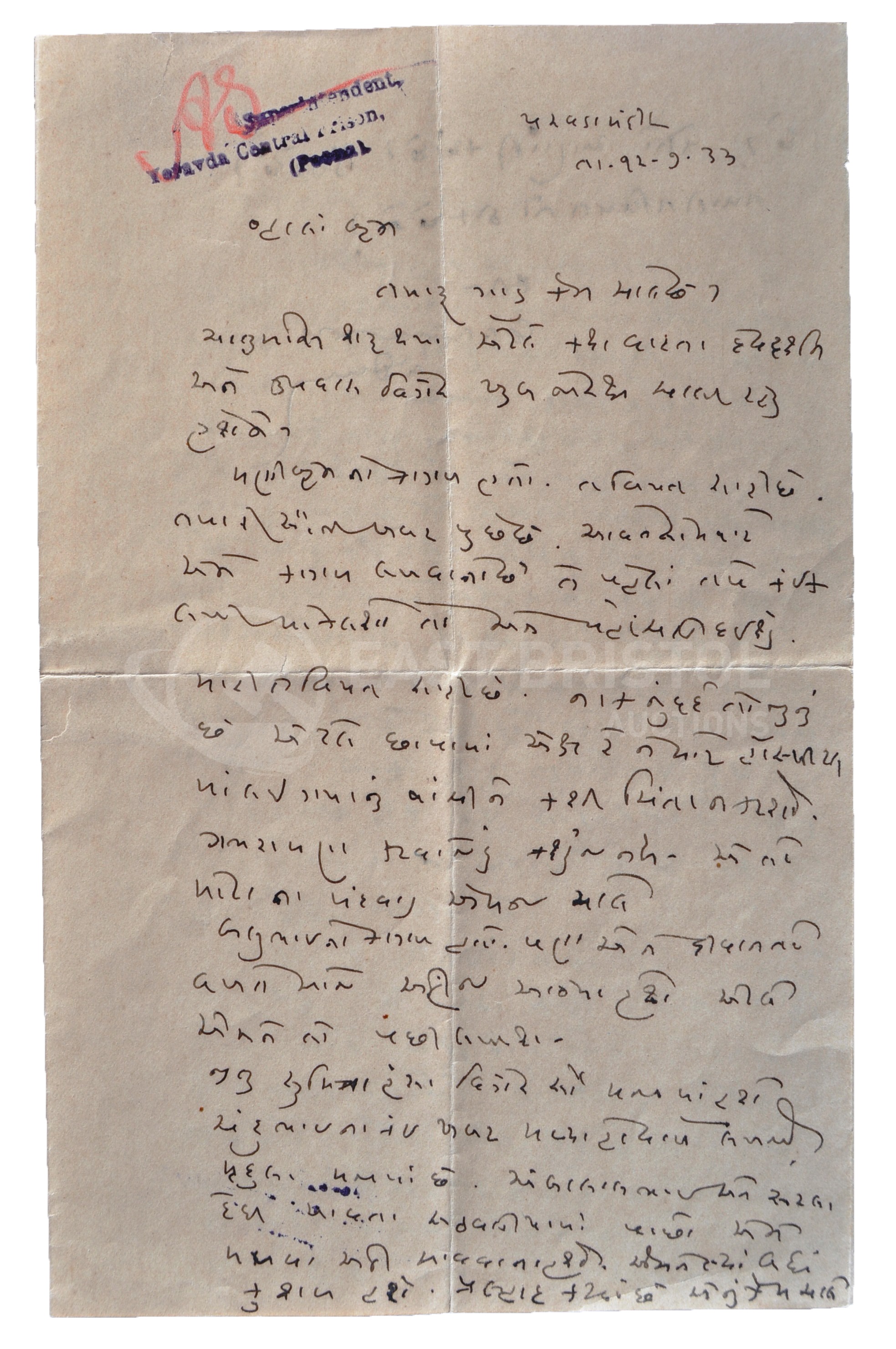


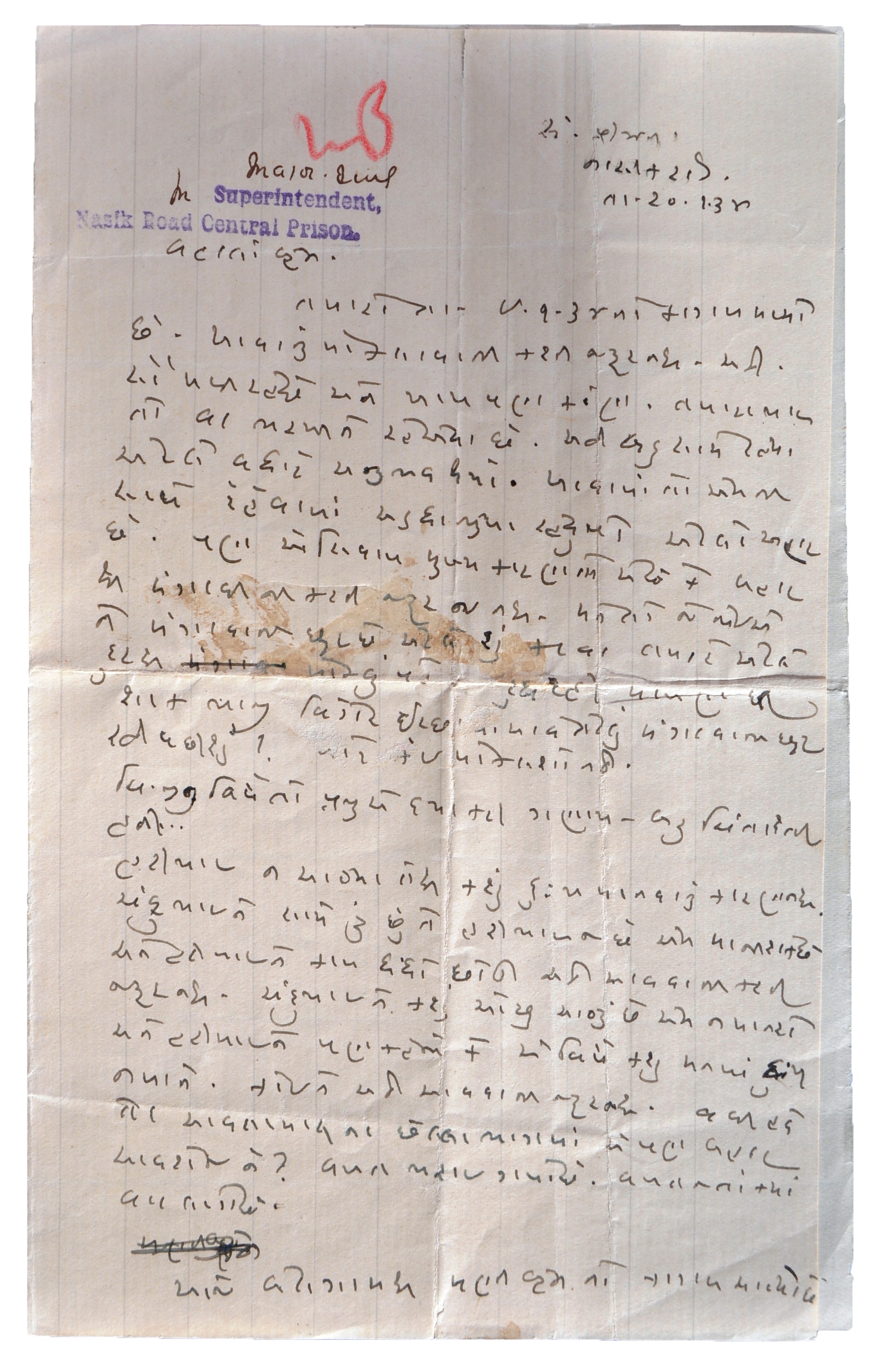

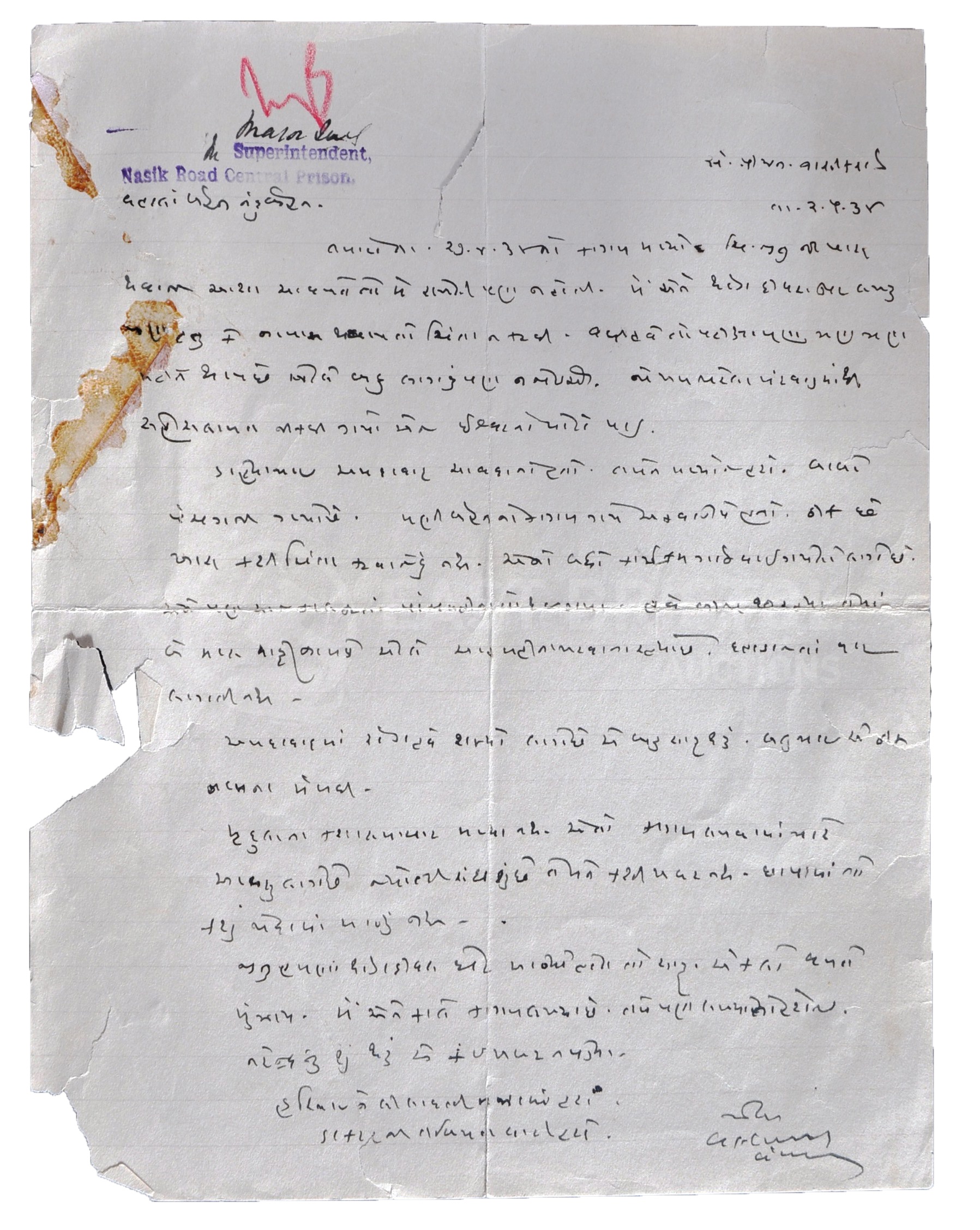

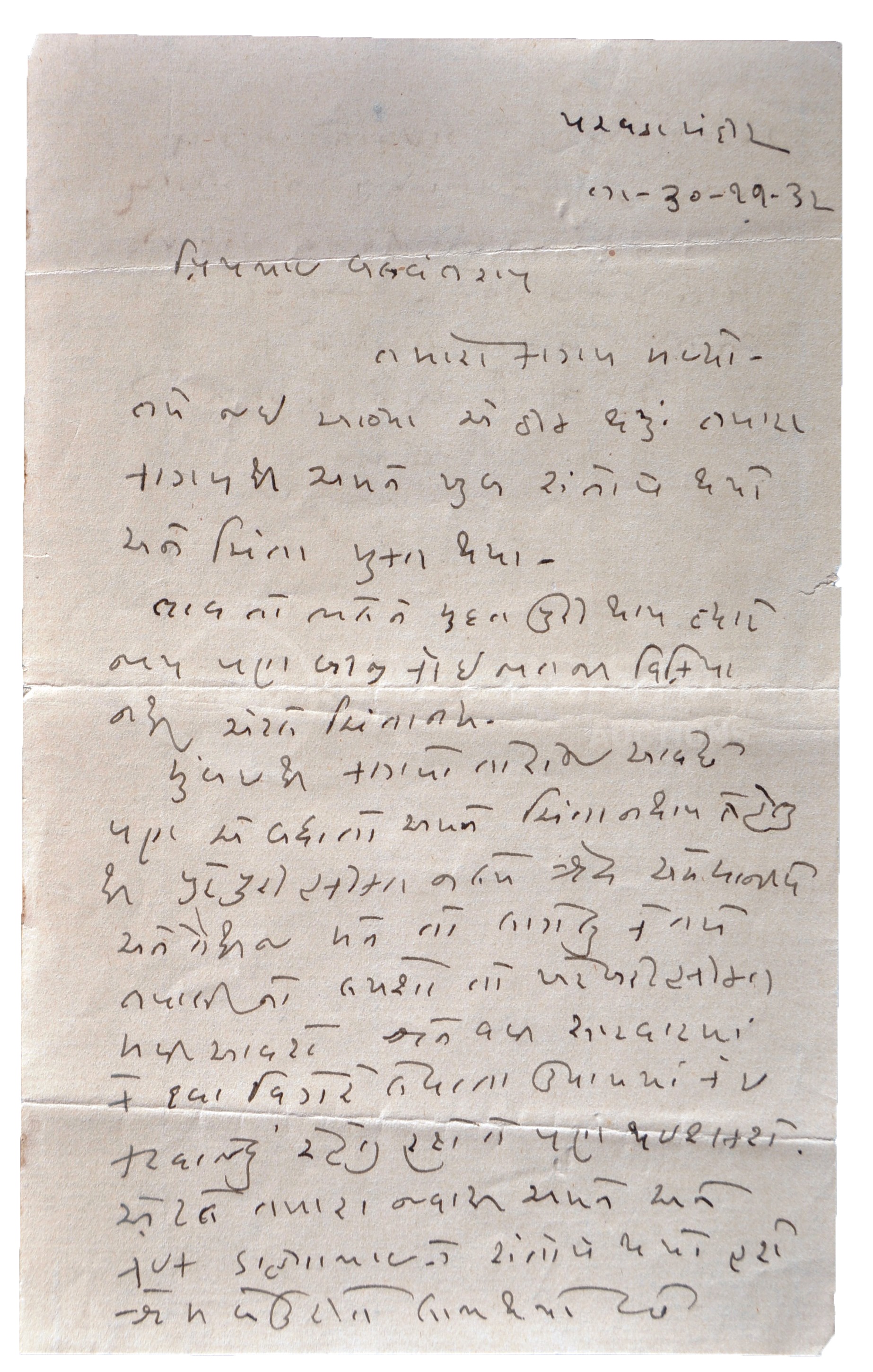
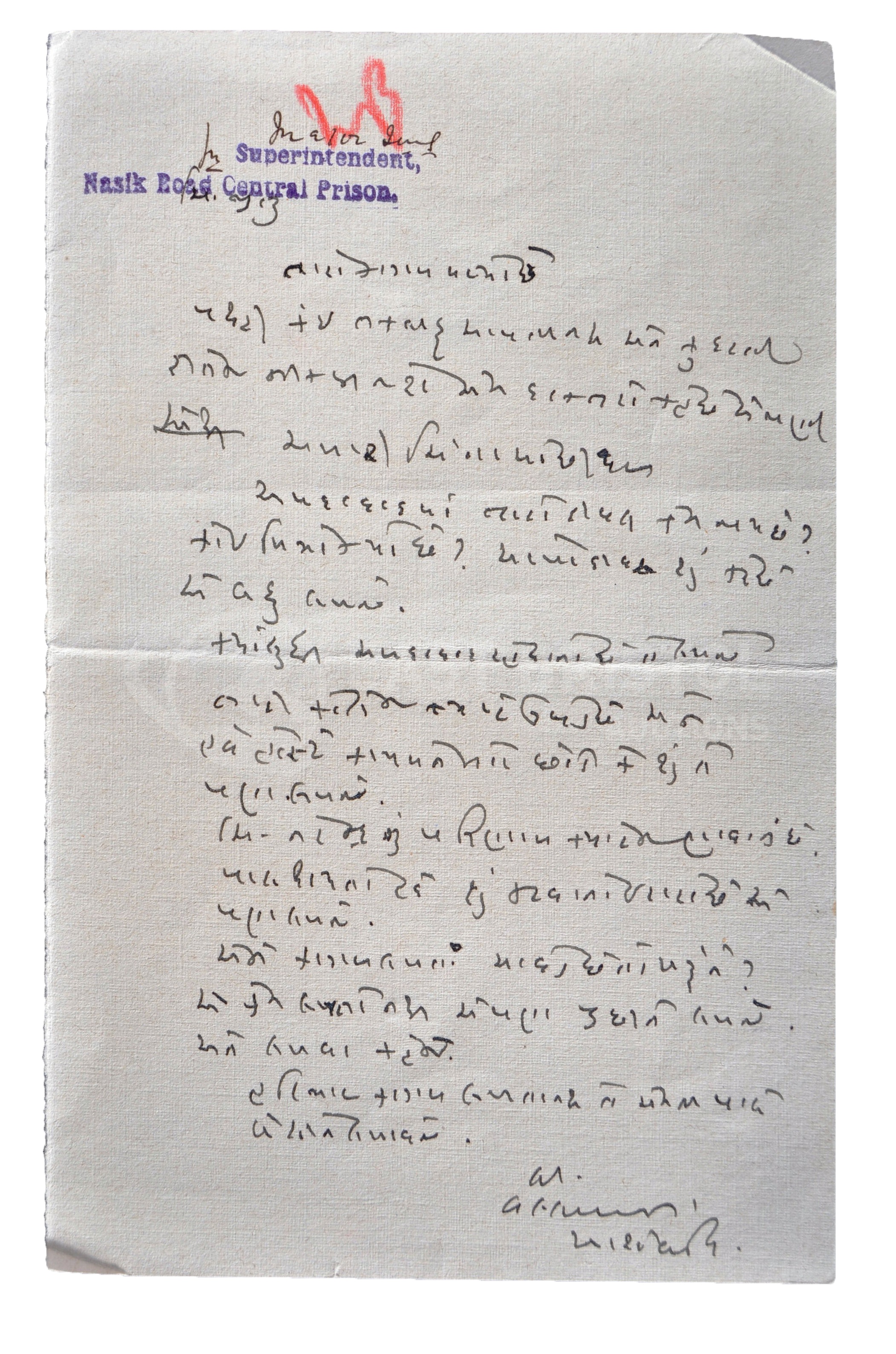
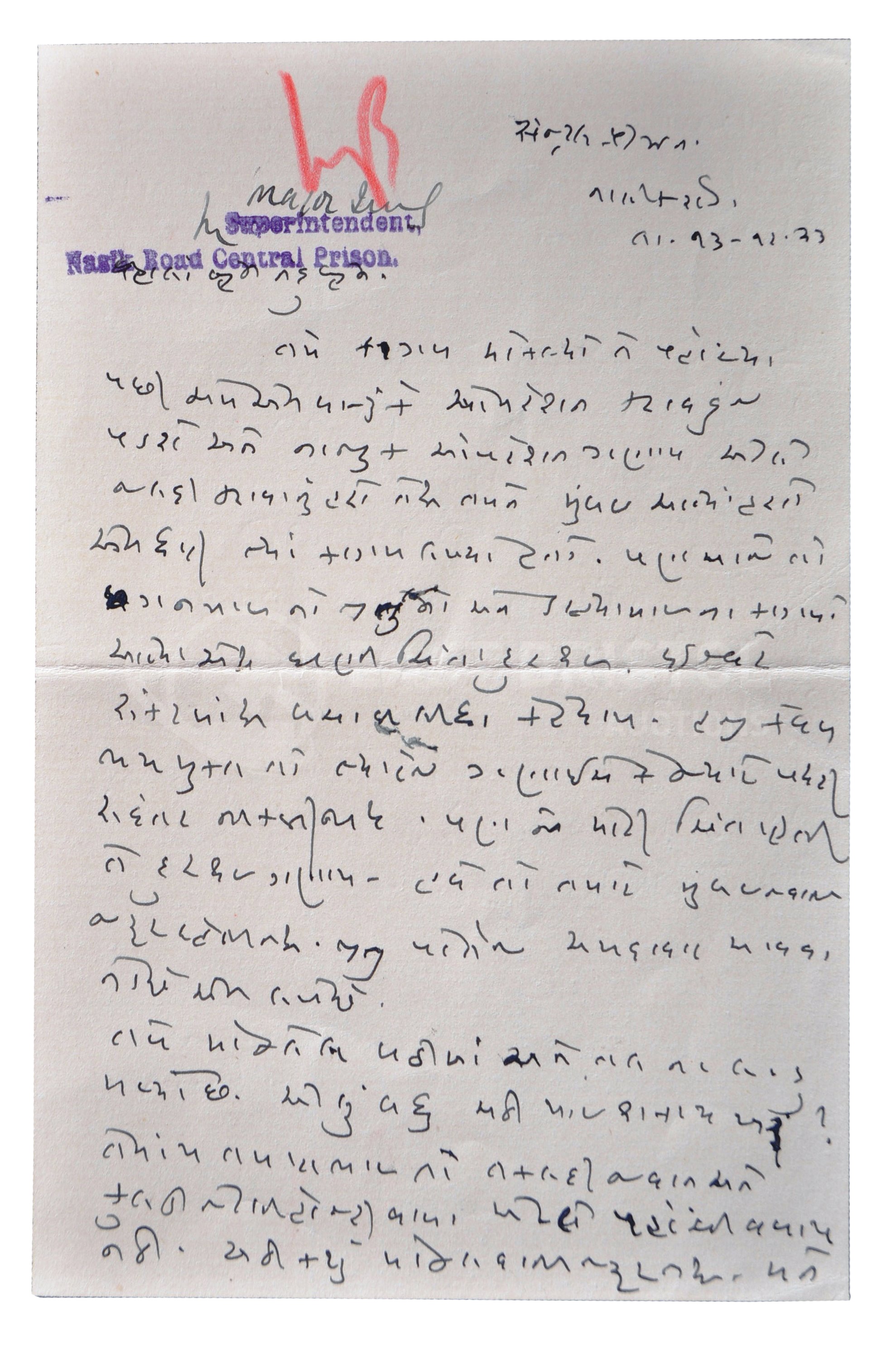
Try LotSearch and its premium features for 7 days - without any costs!
Be notified automatically about new items in upcoming auctions.
Create an alert